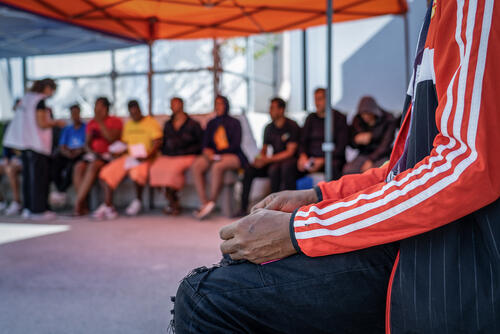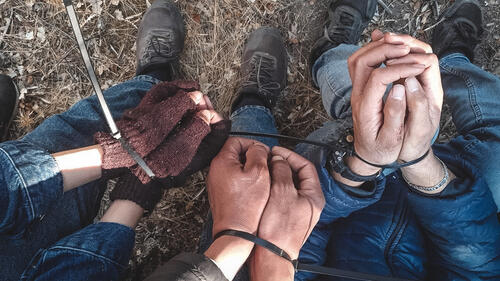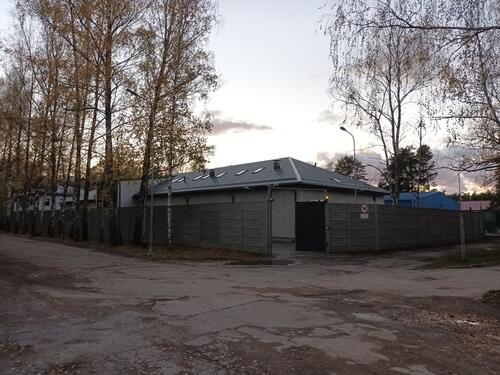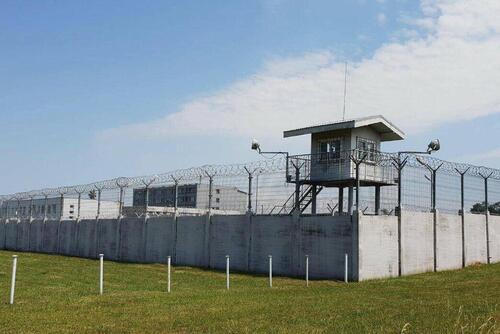Trying to see a doctor; getting hold of insulin treatment for diabetes; seeking legal advice prior to an asylum interview. These are the challenges faced by refugees, migrants and asylum-seekers stuck in the isolated and highly securitised Zervou centre on the Greek island of Samos.
Zervou centre is the result of an aggressive EU-funded containment policy of ‘closed-controlled access centres’ in remote locations on five Aegean islands, where people seeking safety in Greece are placed while their asylum claim is being processed. Three of these centres have been opened on Samos, Leros and Kos, with a further two planned to open in 2023 on Lesvos and Chios.
People arrive in Greece distressed, most having fled conflict or persecution in their home countries, and many having been exposed to appalling levels of violence during their journeys. They are welcomed with double layers of barbed-wire fencing, X-rays and biometric identification.
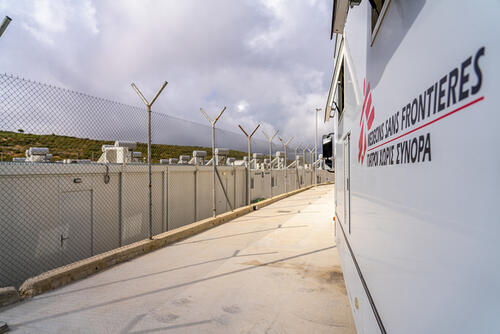
“People in Zervou centre tell us of having survived trafficking, sexual assault, forced labour and beatings,” says Médecins Sans Frontières (MSF) head of mission Nicholas Papachrysostomou.
“Some have seen their family members die during previous forced returns or during shipwrecks. The prison-like centres fail to provide for their basic needs and cause preventable harm to their mental and physical health.”
Only people with an asylum ID card can enter or leave Zervou centre but registering for an ID card can take 25 days or longer. All new arrivals are therefore effectively detained, without the freedom to come and go. So far, the centre’s management has allowed people without ID cards out for medical or legal appointments, but this could change at any moment.
People tell us of having survived trafficking, sexual assault, forced labour and beatings... Some have seen family members die during previous forced returns or shipwrecks.Nicholas Papachrysostomou, MSF head of mission in Greece
Failure to provide adequate healthcare
“The first glaring gap is people’s lack of access to healthcare,” says Sonia Balleron, MSF project coordinator in Samos. “You have to imagine people who have been traveling for quite some time without medical care.”
Yet since February 2022 doctors have only visited the centre on occasional days for a few hours at a time. The healthcare provision within centres continues to be problematic with continuous lack of medical staff and medical supplies. In response to this situation, and to ensure that people’s basic health needs are met, MSF has been running a mobile clinic three times per week since April 2022 in Zervou centre.
However, specialist medical care is unavailable on Samos, and people in need have faced administrative delays of up to several months for transfers to hospitals on the Greek mainland.
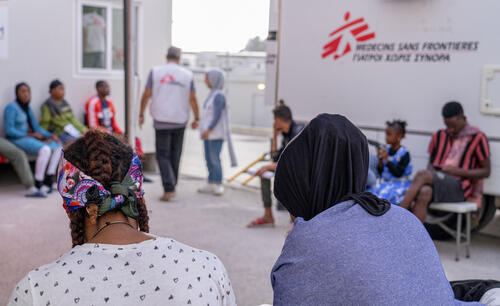
High security infrastructure impacts people’s mental health
Many people who have previously gone through traumatic experiences find their mental health condition exacerbated by the prison-like conditions, the segregation and the security infrastructure.
Between September 2021 and September 2022, 40 per cent of MSF’s mental health patients on Samos had symptoms related to psychological trauma. Over the past year, our teams have seen high levels of generalised mental health suffering amongst people in Zervou centre and demand for our mental health services has been consistently high.
One of our patients describes Zervou centre as ‘mental punishment’ and rarely leaves his room to avoid being confronted by the barbed wire and intrusive police presence.
A rushed asylum process
On Samos and Lesvos, people are often asked to their first interview immediately after leaving quarantine, with too little time to recover from their journey, no understanding of the procedure for claiming asylum, and no chance to seek legal assistance or prepare for the interview.
Another major stressor for our patients is the lack of clarity around the asylum process. The toll on their mental and physical health is undeniable and clearly visible.Sonia Balleron, MSF project coordinator in Samos
“Another major stressor for our patients is the lack of clarity around the asylum process,” says Balleron. “The toll on their mental and physical health is undeniable and clearly visible,” he says.
One of our patients is a survivor of torture, although this was not identified by asylum authorities. As a result, the person was given no information about their right to medical and psychosocial support, nor were they referred to medical or psychological services. They went to their asylum interview without having received any legal advice, and subsequently their asylum claim was rejected twice.
A hostile environment
“If we compare Zervou centre to previous camps, it’s fair to say that the closed centre is an improvement in some ways,” says Balleron. “People stay in containers instead of in tents and there is less overcrowding than in the former camps. However, Zervou centre is a hostile environment and fails to receive people in humane and dignified conditions.”
Living conditions in the centre are poor as a result of infrastructure problems, with stoppages in the water supply and frequent breakdowns of air conditioning and heating.
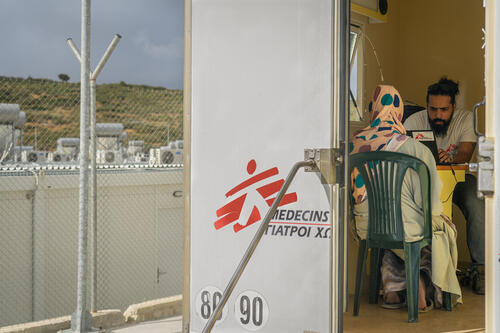
In addition, Zervou centre’s remote location makes it difficult for people to interact with normal society. The planned closed controlled access centre on Lesvos is even more isolated, at 33 kilometres from Mytilene town, adding a significant barrier for services and underlining again the logic of segregation and de-facto detention that underpins these centres.
“Our experiences providing care in Zervou centre underline the dangers of closed centres,” says Papachrysostomou. “Asylum seekers need access to quality, timely medical care. Authorities should invest in dignified reception conditions and safe accommodation, such as housing within communities, and integration programmes.”
“People need a safe, supportive and humane environment to register and process their asylum claim without risk of further re-traumatisation as international, EU and national legislation provide,” he says.



